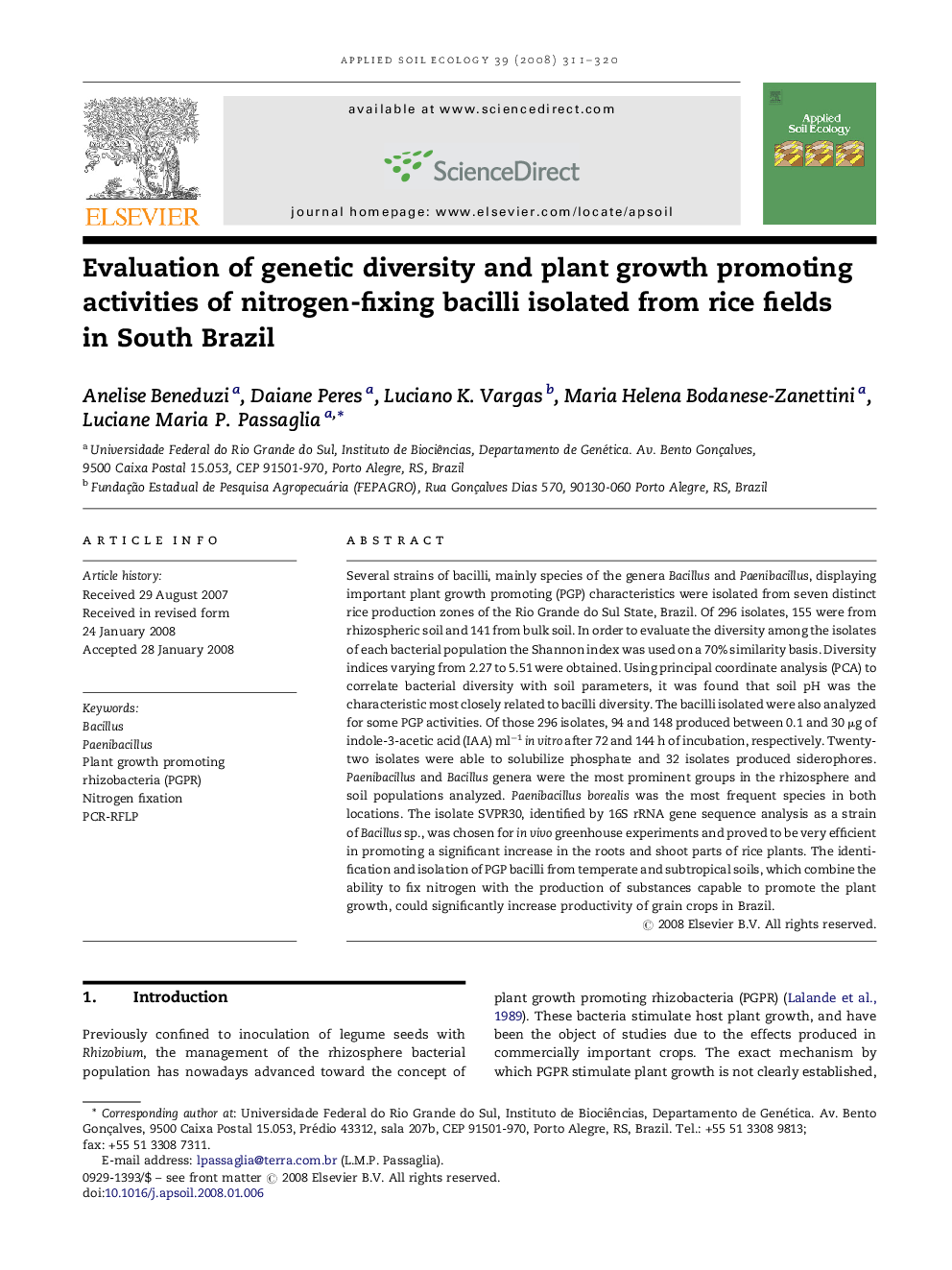| Article ID | Journal | Published Year | Pages | File Type |
|---|---|---|---|---|
| 4383180 | Applied Soil Ecology | 2008 | 10 Pages |
Several strains of bacilli, mainly species of the genera Bacillus and Paenibacillus, displaying important plant growth promoting (PGP) characteristics were isolated from seven distinct rice production zones of the Rio Grande do Sul State, Brazil. Of 296 isolates, 155 were from rhizospheric soil and 141 from bulk soil. In order to evaluate the diversity among the isolates of each bacterial population the Shannon index was used on a 70% similarity basis. Diversity indices varying from 2.27 to 5.51 were obtained. Using principal coordinate analysis (PCA) to correlate bacterial diversity with soil parameters, it was found that soil pH was the characteristic most closely related to bacilli diversity. The bacilli isolated were also analyzed for some PGP activities. Of those 296 isolates, 94 and 148 produced between 0.1 and 30 μg of indole-3-acetic acid (IAA) ml−1in vitro after 72 and 144 h of incubation, respectively. Twenty-two isolates were able to solubilize phosphate and 32 isolates produced siderophores. Paenibacillus and Bacillus genera were the most prominent groups in the rhizosphere and soil populations analyzed. Paenibacillus borealis was the most frequent species in both locations. The isolate SVPR30, identified by 16S rRNA gene sequence analysis as a strain of Bacillus sp., was chosen for in vivo greenhouse experiments and proved to be very efficient in promoting a significant increase in the roots and shoot parts of rice plants. The identification and isolation of PGP bacilli from temperate and subtropical soils, which combine the ability to fix nitrogen with the production of substances capable to promote the plant growth, could significantly increase productivity of grain crops in Brazil.
